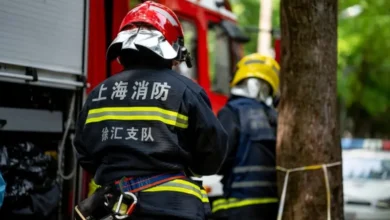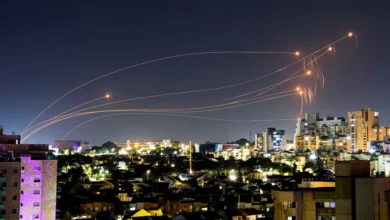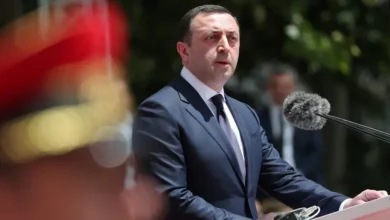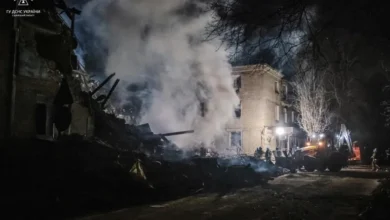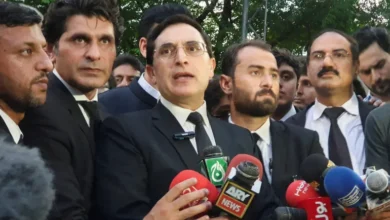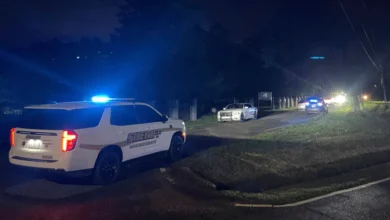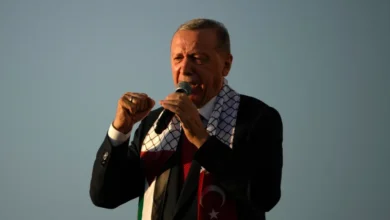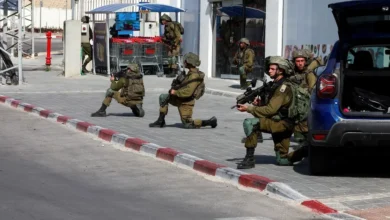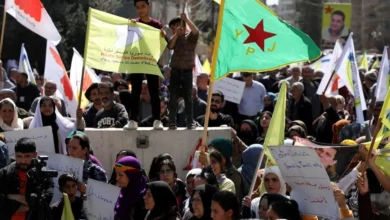How and why UNIFIL failed to ‘keep peace’ in Lebanon
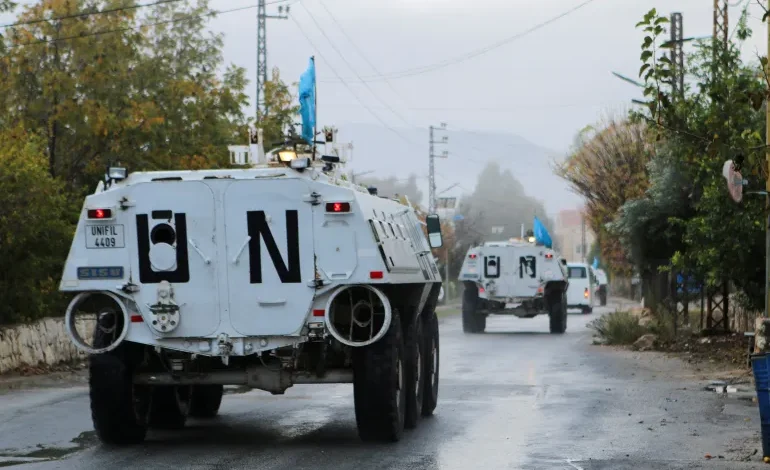
During Israel’s most recent invasion of Lebanon, the United Nations peacekeeping force (UNIFIL) based in the country repeatedly come under fire. The Israeli army targeted its headquarters and positions in southern Lebanon, with the UN saying that several attacks were “clearly deliberate”.
Hezbollah was also accused of launching rockets at UNIFIL positions, which caused injuries among peacekeepers.
While UNIFIL itself was under fire, the civilian population in Lebanon was also subjected to indiscriminate attacks by Israel. More than 3,800 people have been killed, including more than 200 children, and more than 15,400 wounded since October 2023.
As yet another Israeli war on Lebanon has taken a painful toll, UNIFIL has clearly failed in its mission to “keep peace”. It is incapable of stopping Israeli aggression and has done little to help the Lebanese authorities maintain control over their southern territory and protect the civilian population. This failure raises important questions about its continuous presence in Lebanon under the new ceasefire announced on November 26.
Failure to protect
UNIFIL is one of the largest and longest-running peacekeeping missions in the world. It was created in March 1978 by the UN Security Council Resolutions 425 and 426 in order to: confirm Israel’s withdrawal from Southern Lebanon; restore peace and security; and assist the Lebanese government in regaining control over the area.Although UNIFIL was supposed to protect the civilian population and was given the right to use weapons to defend itself, it was not empowered to use force to fulfil its mandate. Throughout its existence, its troops have not returned any fire directly at Israel in any of its aggressions against Lebanon.
After the 2006 war, UNIFIL force was increased from 2,000 to 15,000 soldiers and its mandate was expanded to include disarming all non-state entities in Lebanon. Given that Hezbollah continues to have access to weapons, it is clear that UNIFIL has failed to implement that aspect of its mandate, as well.
The inability of UNIFIL to protect itself, let alone Lebanese civilians from Israeli aggression has had deadly consequences throughout the years. In 1987, an Israeli tank fired at a UNIFIL observation post and killed an Irish peacekeeper, which the Irish army perceived to be a deliberate attack.
During Israel’s assault on southern Lebanon in 1996, the Israeli army targeted a UNIFIL Fijian battalion base in Qana, killing more than 100 civilians, including at least 37 children, and four UNIFIL soldiers. Some 800 civilians had sought refuge at the base, hoping they would be safe from Israeli attacks under UN protection.
International outrage over the massacre forced Israel to end its assault on Lebanon. However, many contributing countries continued to send their troops to South Lebanon and maintain normal relations with Israel.
Ten years later, in the July 2006 war between Hezbollah and Israel, UNIFIL once again came under direct fire from Israel. As concluded by the Report of the Commission of Inquiry on Lebanon, UN positions were targeted 30 times in the course of the 34-day war and all attacks were unjustified. Among the incidents was an Israeli air strike on a UNIFIL base in Al-Khiyam which killed four unarmed UN observers.
In the years leading up to 2023, Israel continuously demonised UNIFIL, accusing it of working for Hezbollah, covering up its tunnels and tracks, and overlooking the movement of weapons. Through such attacks, Israel aimed to delegitimise UNIFIL, providing a pretext for more violent attacks to come.
UNIFIL troop-contributing countries had plenty of time to re-evaluate the risk they were putting their peacekeepers in. Instead of holding Israel accountable for its violence, they continued to put their soldiers in the line of fire.
A complicated relationship with local population
As UNIFIL failed to protect civilians from Israeli aggression, local communities in the south developed sometimes tenuous relations with the force. These dynamics depend somewhat on the nationality of a certain battalion and the denomination of the community, where it is deployed. European troops have been overwhelmingly perceived as spies for Israel, especially by the Shia population, which has endured the worst of Israel’s occupation and violence and has witnessed UNIFIL’s passivity and inability to provide protection.
It is of note that UNIFIL, compared with other peacekeeping missions, has the highest number of European soldiers. Almost 40 percent of UNIFIL’s troops come from European countries, such as Italy, France and Spain
In my years travelling to the south, I have been told numerous times that there was “no reason” to study UNIFIL because clearly, they are “a weapon for Israel” or “spies”.
“As long as Israel exists there, they’ll continue to exist here,” a Lebanese worker employed by the UNIFIL told me. Many share this sentiment and ask: if UNIFIL has been unable to fulfil its objectives, why has it stayed in the south?
Part of the reason for this mistrust is that some UNIFIL contingents have used aid to try to penetrate local communities. Given the devastation Israel has repeatedly wrought on the south and the general neglect by the central government in Beirut, villages and towns have struggled to rebuild and develop.
After the 2006 war, UNIFIL started implementing so-called “quick impact projects “(QIPs), which have delivered much-needed help to these communities. But some of these initiatives have also caused more resentment because they have been made conditional.
Villages and towns, for example, where the mayor is publicly supportive of the resistance, would not receive such aid; the same would go for public institutions, such as schools. When communities are granted QIPs, they are expected to be “grateful” and allow UNFIL greater access to carry out surveillance in their areas.
.
